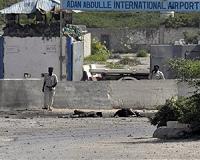 |
San Jose (AFP) Dec 14, 2010 The Inter-American Court of Human Rights Tuesday said a Brazilian amnesty law covering crimes during its 1964-1985 military dictatorship was invalid and Brazil is "responsible" for 61 people who disappeared from 1972-1974. It also set damages payments to 70 surviving relatives of the missing people at more than 2.5 million dollars. The ruling flies in the face of Brazil's Federal Supreme Court's refusal in May to investigate an anti-guerrilla military operation in the Araguaia region in that period, as requested by the families of the victims of the crackdown. The Brazilian court had invoked a 1979 amnesty law in its ruling. Part of the Washington-based Organization of American States, the Costa Rica-based IACHR said Brazil "is responsible for the forced disappearances" and human rights violations of 61 victims of the 1972-1974 anti-guerrilla operation in Araguaia, in central Brazil. It also held the Brazilian government responsible for violating the rights of some of the victims' relatives "because of the suffering caused by the lack of effective investigations" into the case. The 1979 amnesty law, the court said, is "incompatible" with the American Convention on Human Rights, "lacks any juridical effect," and "cannot continue to represent an obstacle to investigate the facts in this case" or to punishing its culprits or those of "other cases of serious human rights violations... that took place in Brazil." The court ordered Brazil to conduct a "criminal investigation" into the Araguaia case, bring the guilty parties to justice, search for the missing people and provide medical and psychological treatment to their surviving relatives. It said 42 direct relatives of the victims should receive 45,000 dollars each in compensation for their suffering, and 28 indirect relatives, 15,000 dollars each. In addition, all 70 relatives should also receive 3,000 dollars each for medical and psychological treatment. In Brazil, relatives of victims of the military dictatorship, non-governmental organizations and some law experts have called for a revision of the amnesty law. Brazilian president-elect Dilma Rousseff, who takes office January 1, was jailed for three years and tortured from 1970 for belonging to a guerrilla group seeking the overthrow of the military dictatorship. During her election campaign, she vowed to bring human rights violators from Brazil's dark past to justice.
Share This Article With Planet Earth
Related Links The Long War - Doctrine and Application
 Yemen al-Qaida chief said slain in Somalia
Yemen al-Qaida chief said slain in SomaliaMogadishu, Somalia (UPI) Dec 13, 2010 The reported death in Mogadishu of Rajah Abu Khalid, an al-Qaida commander from Yemen fighting alongside al-Shabaab insurgents in Somalia, highlights Western concerns that the jihadists in Yemen are widening their war. Abu Khalid was critically wounded Dec. 6 during heavy fighting between the insurgents and forces of the Western-backed Transitional Federal Government in the Somali capit ... read more |
|
| The content herein, unless otherwise known to be public domain, are Copyright 1995-2010 - SpaceDaily. AFP and UPI Wire Stories are copyright Agence France-Presse and United Press International. ESA Portal Reports are copyright European Space Agency. All NASA sourced material is public domain. Additional copyrights may apply in whole or part to other bona fide parties. Advertising does not imply endorsement,agreement or approval of any opinions, statements or information provided by SpaceDaily on any Web page published or hosted by SpaceDaily. Privacy Statement |